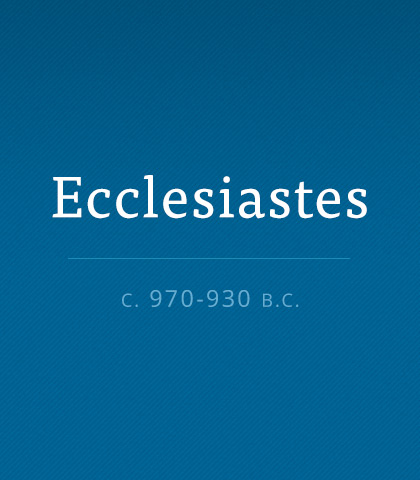Ecclesiastes: Searching for the Meaning of Life
The book of Ecclesiastes, as short as it is, is one of the most mysterious works in the Bible. Its content marks a decided departure from the orthodox, a bold and even imprudent alienation from Jehovah…and yet in a few verses, we read strong words in defense of a life devoted to the living Lord.


